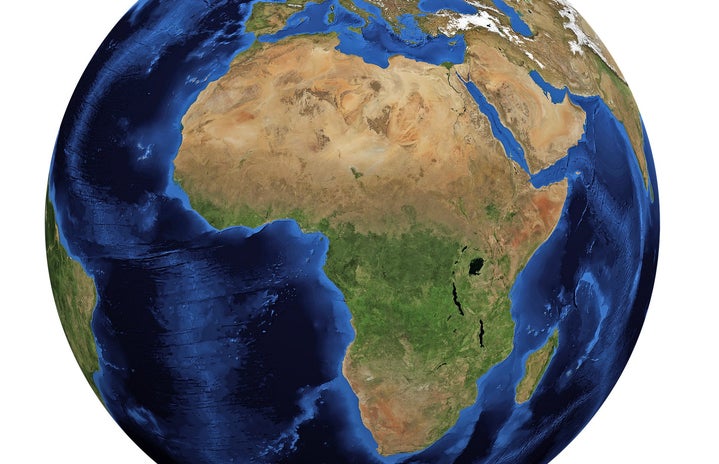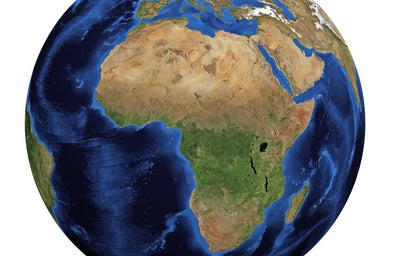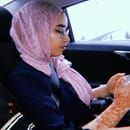A few days before I began writing this article, I posted an Instagram story with the ask function on it, asking people to provide me with different stereotypes, ignorant assumptions or questions about Africa that people had made to them in the past. I thought I had heard every single ignorant statement about the continent before sending out the story, so you can imagine my surprise when I read some of the comments that had been sent in. The following statements are the answers I received on my story:
“Africa is a Country.”
“Are there any airports in Africa?”
“Do lions live in your backyard?”
“The entire ‘country’ (Africa) is starving.”
“What tribe do you belong to?”
“Did Africans become fast runners because they are chased by lions?”
“There is no clean water in Africa.”
As a young woman from Kenya, an East African country, hearing incorrect, imprecise and completely ignorant comments about the continent I’m from being referred to as one big country stuck in the middle of the fourteenth century is hurtful and quite offensive. Growing up, Africa was framed to be a country filled with famine, disease, violence and poverty. Wherever I looked I’d see a photograph of a Black child whose bones were visible through his skin due to a lack of muscle, and whose stomach had become bloated as a result of his food deprived living situation. If I hadn’t had relatives to visit there, I most probably would have fallen prey to these false narratives spread through mainstream media.
Over the past few weeks, I’ve had to endure continuous ignorance regarding the continent, and despite making comments to counter these statements, I was either ignored, or misunderstood. I’ve decided to make this post to raise awareness about what Africa really is, and the dangers of what Chimamanda Ngozi Adichie calls, “the single story narrative.”
I will not deny that Africa is full of color and culture, with beautiful reserves for tourists to visit on Safari. I can’t say that there is no poverty or sickness in the continent either, for these are two phenomenons that are present the world over. However, what I will say is that Africa is more than just tribal people living in huts. It is more than the little boys and girls the United Nations use to pull at potential donors’ heartstrings when it comes to sponsoring a child, or giving a dime to provide one child with clean water for a month. What I must emphasize is that Africa is not a country.
During a TED Talk in 2013, Chimamanda Ngozi Adichie introduced the concept of the “single story narrative,” which encapsulates the idea of a story being told from one point of view, and the dangers that arise from it. The single story narrative is an element that is actively present in mainstream media. As I said previously all that we see in mainstream media is the product of a narrative created through a single story. Every documentary about Africa, on the National Geographic Channel has a “White Savior” at the forefront of its missions, and we never get to see the more prosperous, successful and productive side of the continent. This single story about the continent, obscures and destroys the true image of Africa. Individuals worldwide will never have the opportunity to see the initiatives that have been set by African nations to aid in the fight against famine, disease and violence nor will we have the chance to recognize the incredible achievements of citizens of different African countries.
Last semester, we were assigned a reading by Binyavanga Wainaina that shook me to the core. This short piece, titled “How to Write About Africa,” is a satirical paper that highlights the way Africa is portrayed in mainstream media. Wainaina begins by telling readers that they should “treat Africa as if it were one country” and to use photos of “prominent ribs [and] naked breasts”. He continues to say that “Africa is to be pitied, worshipped or dominated,” and that the Africans you describe in your writing “have music and rhythm deep in their souls, and eat things no other humans eat” (Wainaina). Like many of us living in ignorance, Wainaina encourages us to remember that “any work you submit in which people look filthy and miserable will be referred to as the “real Africa’” and to conclude, we must mention “Nelson Mandela saying something about rainbows or renaissances. Because you care.” This paper resonated with me so strongly that even months after I read it, it stays fresh in my mind. Wainaina’s ironic explanation of how to perfectly write about Africa is a spitting image of what we see on major news sites, as well as social media platforms. That so many achievements in Africa go unnoticed and unappreciated is unfair.
Once again, my intention behind writing this post is not to demonize the foreign support that the continent of Africa has received, but to highlight and emphasize that these pictures do not tell the whole story. We are not “just” South Africa. Africa is a continent rich with history! According to ASBMB Today, Africa is the origin of numerous important innovations, such as math and the first method of counting, astronomy, architecture, medicine and navigation techniques. Consider the Great Library of Alexandria, which was one of the first universal libraries in the world (Britannica). Aside from ancient achievements we must acknowledge and give credit to contemporary ones as well! In November of 2019, I wrote a post that highlighted just a small handful of successful African women, in an attempt to raise awareness about the achievements that have been made within the continent. These women were from all over Africa, ranging from Nigeria to Zambia, and have accomplished great things.
Africa is a continent made up of 54 incredible countries, filled with different cultures, languages, religions and communities, and believe it or not, not all of us look the same either. This continent is more than just the Sahara Desert, or savannahs and pridelands rich with wild animals with Masai people hunting their prey. We are a continent of development, and if you go one step further in your aim to learn more about the continent, only then will you see the real Africa.






